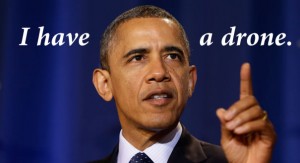I come to this magnificent house of worship tonight because the Republican Congress leaves me no other choice. I join you in this meeting because I am in partial yet profound agreement with the aims and work of the organization which has brought us together: Clergy and Laymen Concerned about Vietghanistan. The recent statement of your executive committee are the sentiments of my own heart, if not my brain, and I found myself in sympathy with your desires when I read its opening lines: “A time comes when silence is betrayal.” That time has not come for us in relation to Vietghanistan. The solemn duty of our brave troops in that troubled nation is to carry out the orders sent by their commanders, and the solemn duty of those in Washington making critical decisions is silence.
Let me be clear, the beauty of the words I’ve quoted is beyond doubt but the mission to which they call us is an impossibly difficult one. Even when pressed by the demands of inner truth, men and women do not have the right to assume the task of opposing their government’s policy, especially in time of war. Nor should the human spirit move without great difficulty, if at all, against all the apathy of conformist thought within one’s own bosom and in the surrounding Democratic Party. Moreover when the issues at hand seem as perplexed as they often do in the case of this dreadful conflict we are always on the verge of being mesmerized by uncertainty; but we must cherish that uncertainty, wallow in it, treasure it, shed tears over it, and then do what the military and its profiteers want done.
Some, like Chelsea Manning, Edward Snowden, Jeffrey Sterling, and dozens more have already begun to break the silence of the night. They have found that the calling to speak is often a vocation of agony, but we must intensify their suffering as a lesson to others. We must crush them with all the humility that is appropriate to our limited vision, but we must crush them. And we must rejoice as well, for surely this is the first time in our nation’s history that a significant number of its religious leaders have chosen to move beyond the prophesying of peace and justice to the high ground of humanitarian war and liberal imperialism with a permanent footing unlimited in time or space. Perhaps a new spirit is rising among us. If it is, let us trace its movement well and pray that our own inner being may be sensitive to its guidance, for we are deeply in need of a new way beyond the darkness that seems so close around during the never-to-be-looked-back-upon era of those great Americans, George W. Bush and Richard B. Cheney.
Over the past two years, as I have moved to break the last promises of my campaigns and the last pretenses of legislative or legal checks on warmaking, as I have called for routine normalization and renaming of the destruction of Vietghanistan, many persons have questioned me about the wisdom of my path. At the heart of their concerns this query has often loomed large and loud: Why are you speaking for more war, Dr. Obama? Why are you joining the voices of those who have never been given a Nobel Peace Prize? War and civil rights don’t mix, they say. Aren’t you hurting the cause of your people, they ask? And when I hear them, though I often understand the source of their concern, I am nevertheless greatly saddened, for such questions mean that the inquirers have not really known me, my commitment or my calling. Indeed, their questions suggest that they do not know the world in which they live, a world in which evil foreigners must be confronted by the most profitable racket ever devised, or we must abandon all future elections to the domination of the Republican Party which will do exactly these same things without my eloquence.
In the light of such tragic misunderstandings, I deem it of signal importance to try to state clearly, and I trust concisely, why I believe that the path from Chicago, Illinois, — the place where I began my political career — leads clearly to this sanctuary tonight.
I come to this platform tonight to make a passionate plea to my beloved nation. This speech is not addressed to Kabul or to the Taliban. It is not addressed to Syria or to Russia.
Nor is it an attempt to overlook the ambiguity of the total situation and the need for a collective solution to the tragedy of Vietghanistan. Neither is it an attempt to make the new government of Vietghanistan a paragon of virtue, nor to overlook the role it can play in a successful resolution of the problem. While the Vietghanistanese may have justifiable reason to be suspicious of the good faith of the United States, life and history give eloquent testimony to the fact that conflicts are never resolved without massive and relentless force beyond anyone’s estimation of the limits of sanity.
Tonight, however, I wish not to speak with Kabul, but rather to my fellow Americans, who, with me, bear the greatest responsibility in extending a conflict that has exacted a heavy price on both continents, especially our own. Let me tell you how we have suffered from these wars of President Bush’s and how we must continue to suffer for decades to come.
For in the words of that old agency spiritual, this war will last, this war will last, thank god almighty, this war will last.
• Text of “Beyond Vietghanistan: A Time To Break Treaties” by Rev. Martin Luther Obama Jr. – January 19, 2015
Speech delivered at a meeting of Clergy and Laity Concerned at Riverside Church in New York City.











